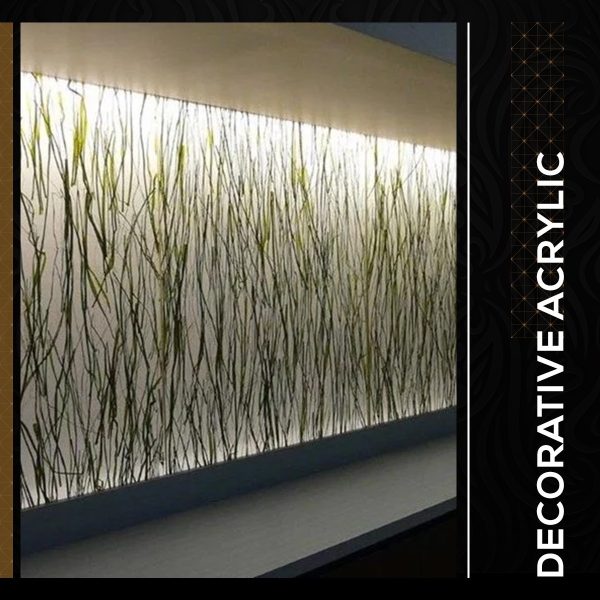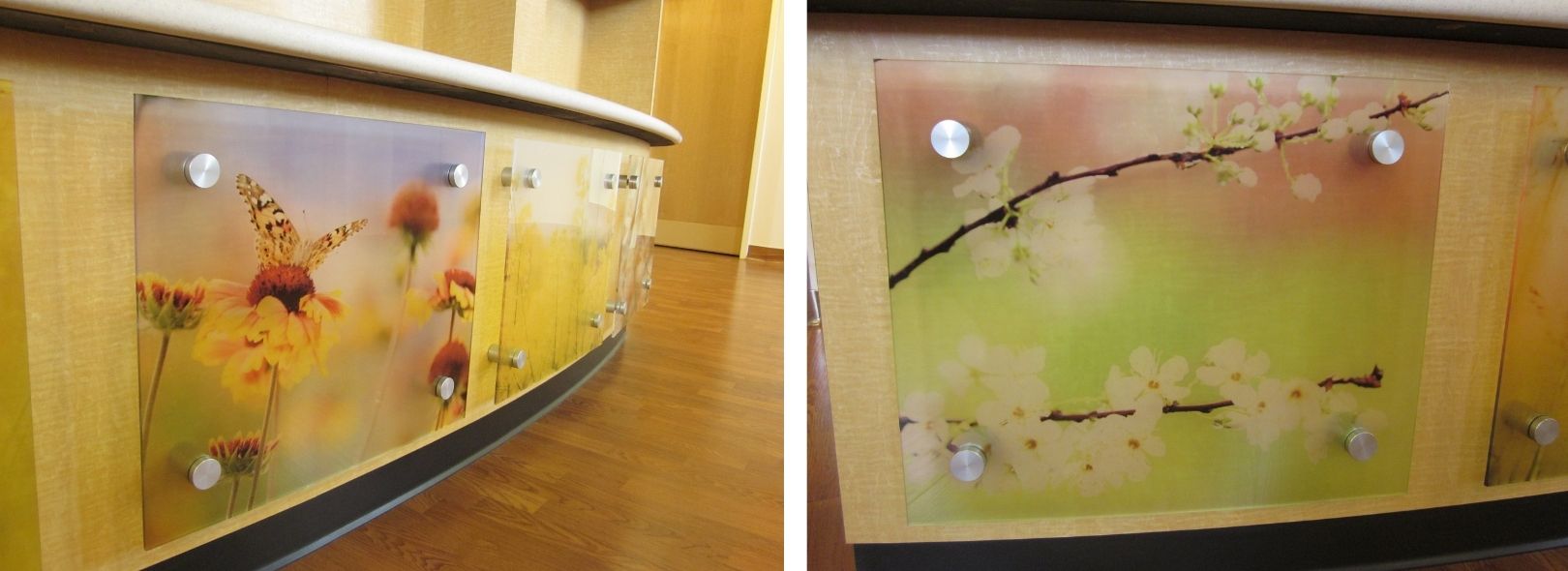Decorative acrylic panels are an outstanding choice for anyone looking to enhance their home or office environment. With a vibrant array of colors, textures, and design possibilities, these panels are not only aesthetic but also functional. In this guide, I will share my personal experience, the advantages of using acrylic panels, and everything you need to know to make an informed decision.
What Are Decorative Acrylic Panels?
Decorative acrylic panels are lightweight sheets made from polymethyl methacrylate (PMMA), known for their clarity and durability. They serve both decorative and functional purposes, ideal for various applications including:
- Wall art
- Room dividers
- Furniture design
- Lighting fixtures
Why Choose Acrylic Panels Over Other Materials?
Acrylic panels are often compared to glass and wood due to their diverse applications. Here’s a comparison highlighting their key differences:
| Feature | Acrylic Panels | Glass | Wood |
|---|---|---|---|
| Weight | Lightweight | Heavy | Medium |
| Durability | High impact resistance | Can shatter | Can warp |
| Cost | Affordable | High | Varies |
| Maintenance | Easy to clean | Requires special care | Needs finishing |
The Benefits of Using Decorative Acrylic Panels

1. Versatility in Design
Acrylic panels come in various colors, finishes, and sizes. You can easily find options that suit your style, whether you prefer a modern aesthetic or something more classic. I once used a translucent blue panel to separate my home office from the living area, which brightened the space while providing necessary privacy.
2. Light Diffusion
These panels allow light to diffuse beautifully, which can help create a warm and inviting atmosphere. For instance, using backlit acrylic panels in a restaurant can create a stunning visual effect that enhances the dining experience.

3. Easy Installation
One of the best aspects of decorative acrylic panels is their ease of installation. Most panels come with pre-drilled holes, making them user-friendly for DIY enthusiasts. I personally installed panels on a feature wall in my home without any professional help, and the results were fantastic!
4. Eco-Friendly Options
Many manufacturers are now offering recycled acrylic panels, making them a sustainable choice for eco-conscious consumers. Opting for these products can reduce your carbon footprint while still enjoying stylish decor.

5. Weather Resistance
For outdoor applications, acrylic panels are also weather-resistant and suitable for various climates, making them an excellent choice for patios, gardens, and other outdoor areas.
How to Use Decorative Acrylic Panels in Your Space?

1. Wall Art and Decor
Creating a unique wall art piece with acrylic panels can dramatically change the look of your room. You can experiment with layering different colors for depth and texture, which is what I did in my entryway.
2. Room Dividers
Using acrylic panels as room dividers can provide privacy while maintaining an open feel in your space. They can be particularly beneficial in studio apartments or shared workspaces.

3. Furniture Accents
Acrylic panels can be incorporated into furniture design, such as table tops or cabinet doors. They add a contemporary touch while being durable and easy to clean.
4. Lighting Fixtures
Backlit acrylic panels make for stunning lighting fixtures, providing both ambient and task lighting. I’ve used them in my kitchen for a sleek, modern look, and they offer a great way to illuminate any space.

Choosing the Right Acrylic Panel for Your Project
When selecting acrylic panels, consider the following factors:
1. Thickness
Acrylic panels come in various thicknesses. Thicker panels provide greater durability, while thinner ones may be more suitable for lightweight applications.

2. Color and Finish
From transparent to opaque, and frosted to mirrored finishes, the possibilities are endless. Choose a finish that complements your existing decor.
3. Purpose
Identify the primary purpose of your panels—whether for decorative, functional, or both—and select accordingly.
Installation Tips for Decorative Acrylic Panels
Follow these steps to ensure a smooth installation:
1. Gather Materials
- Acrylic panels
- Measuring tape
- Drill with the appropriate drill bits
- Level
- Mounting hardware
2. Measure Your Space
Accurate measurements are crucial. Measure the area where you plan to install the panels, and ensure the panels fit snugly.
3. Mark Your Drill Points
Using a pencil, mark the areas where you’ll need to drill holes for mounting. Make sure they’re level to avoid crooked installations.
4. Install the Panels
Begin mounting the panels from one side and progressively move to the other. Use a level to ensure that each panel is straight.
5. Finishing Touches
Once all panels are installed, check for any sharp edges and use sandpaper to smooth them if necessary. Clean the surface with a mild detergent and soft cloth to eliminate any fingerprints or smudges.
Maintenance of Acrylic Panels
Maintaining acrylic panels is simple. Here are some tips:
1. Regular Cleaning
Use a soft, damp cloth to clean the surface. Avoid harsh chemicals, as they can damage the material.
2. Scratch Prevention
To prevent scratching, avoid using abrasive pads or cleaners. When moving objects around acrylic surfaces, lift rather than slide.
3. Inspect for Damage
Regularly inspect your acrylic panels for any signs of wear and tear, especially in high-traffic areas.
Cost Considerations for Decorative Acrylic Panels
The cost of acrylic panels can vary based on several factors, including:
- Thickness
- Size
- Finish
- Manufacturer
Generally, expect to pay between $20 to $100 per panel, depending on your specific choices and needs. In my experience, the investment is worth it, as the panels can dramatically transform any space.
Pros and Cons of Decorative Acrylic Panels
Like any product, acrylic panels come with their own set of advantages and disadvantages. Here’s a quick breakdown:
Pros
- Lightweight and easy to handle
- Wide range of designs and colors
- Durable and weather-resistant
- Easy to install
- Low maintenance
Cons
- Can scratch easily
- May yellow over time without UV protection
- Not as heat-resistant as glass
Frequently Asked Questions (FAQs)
What are acrylic panels used for?
Acrylic panels are used for various applications, including wall art, furniture accents, room dividers, and lighting fixtures.
Are decorative acrylic panels waterproof?
Yes, acrylic panels are waterproof, making them suitable for both indoor and outdoor applications.
Can I customize acrylic panels?
Yes, many manufacturers offer customization options, allowing you to choose thickness, color, and finish to match your design needs.
How do I clean acrylic panels without scratching them?
Use a soft microfiber cloth and a mild detergent to wipe down the surface. Avoid abrasive scrubbers and harsh chemicals.
Conclusion
Decorative acrylic panels are a versatile and appealing option for anyone looking to enhance their living or working environment. With their numerous benefits, ease of use, and stunning design possibilities, they can be a fantastic addition to any space. Whether you’re a DIY enthusiast or a homeowner looking to refresh your decor, acrylic panels offer endless opportunities for creativity and style. Based on my experience, investing in these panels will certainly elevate your space.
Now that you know the ins and outs of decorative acrylic panels, are you ready to transform your space?